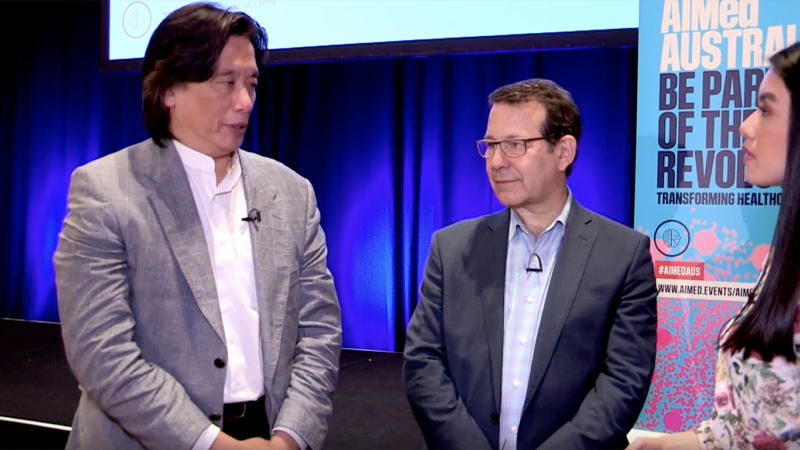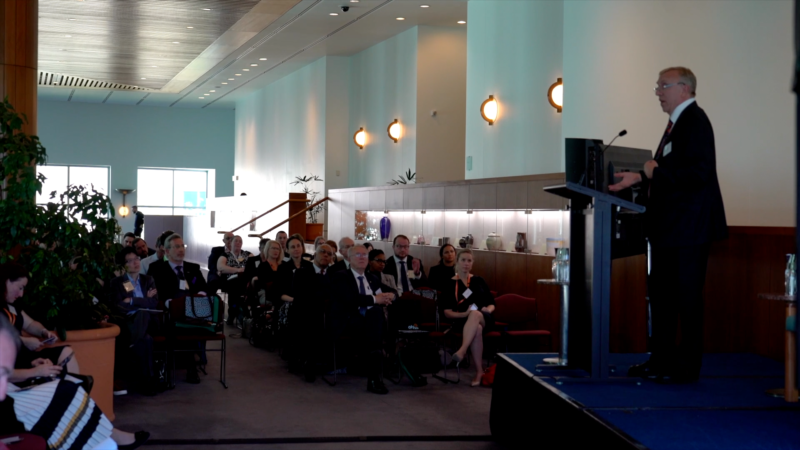ADVOCATING FOR AUSTRALIAN CHILDREN LIVING WITH VISION IMPAIRMENT
Australian Childhood Vision Impairment Register
With
Dr Susan Silveira
Chief Investigator
Australian Childhood Vision Impairment Register, NextSense &
Program Director
Master of Disability Studies (Macquarie University), NextSense
AUSTRALIAN HEALTH JOURNAL SEGMENT
Filmed in Sydney | June 2025
The Australian Childhood Vision Impairment Register (ACVIR), the first of its kind in Australia, captures uniquely Australian data which is used to improve services for children with vision impairment. The data is also available to researchers who work in the area of eye disease and disorders of vision.
Currently in Australia, we don’t know how many Australian children have vision impairment.
This makes it hard to plan for the services these children need, or to argue for research into preventing conditions which cause vision impairment.
NextSense Institute, in partnership with key Australian service providers, corporate donors, government departments and health professionals, has undertaken a major research project to develop and maintain an Australia-wide record of children with vision impairment.
This project is called the Australian Childhood Vision Impairment Register.
Australian Health Journal spoke with Dr Susan Silveira, Chief Investigator of the Register.
The Register collects accurate information on children who have been diagnosed by an ophthalmologist (eye doctor) with vision impairment.. This information is used to establish the number of children with vision impairment, the causes and level of vision impairment and any additional disabilities and health conditions these children have.
The Parent or guardian of a child, aged 0-18 years, who has been diagnosed by an ophthalmologist with vision impairment, are invited to join the Australian Childhood Vision Impairment Register.
The Australian Childhood Vision Impairment Register (ACVIR) is sponsored by NextSense with support from Guide Dogs, Vision Australia, low vision service providers and families of children with vision loss.
Source: Written by AUDIENCED sourced from NextSense website
You Might also like
-
Artificial Intelligence (AI) & data skilling clinicians
In this first release, world renowned AI and medical data science experts Dr Anthony Chang and Professor Enrico Coiera spoke to Australian Health Journal reporter Anne Dao at AIMed 2019 Sydney. The conference aimed at clinicians and non-clinicians discussed current clinical applications of Artificial Intelligence in medical imaging, decision support, use of predictive healthcare and machine learning.
-
Integrating oral health care across non-dental professionals
Poor oral health can contribute to or exacerbate several systemic health conditions due to the close connection between oral bacteria, inflammation, and systemic processes. These conditions include cardiovascular health, diabetes, respiratory health, cognitive health, pregnancy and birth outcomes.
-
The 2019 John Deeble Lecture and Panel Discussion
The John Deeble Lecture and Panel Discussion was established by the Australian Healthcare and Hospitals Association to commemorate the life and achievements as distinguished scholar, health economist and health policy leader, Prof John Deeble AO.



